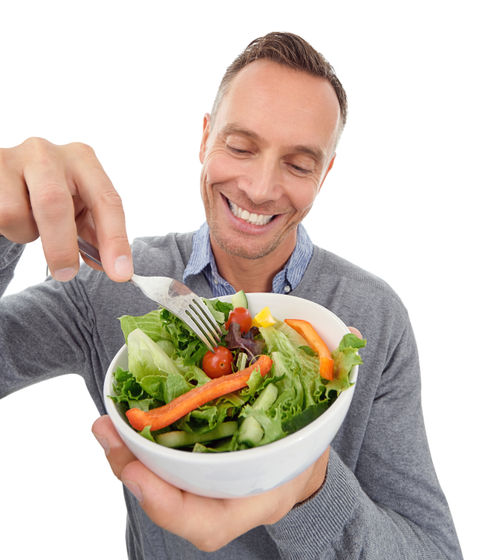``7 ways to overcome food dislikes'' taught by scientists

Most people have their own likes and dislikes about food, but if you leave food out in public, it will be considered bad manners. Additionally, many foods with unique flavors, such as bitter vegetables and fermented foods with strong odors, are good for your health, so it's best to be able to eat them. A taste expert explains the mechanism by which food preferences change and tips on how to enjoy eating foods you don't like.
Taste depends on nature and nurture. Here are 7 ways you can learn to enjoy foods you don't like
According to Nicholas Archer, who studies taste and eating behavior at the Australian Commonwealth Scientific and Industrial Research Organization (CSIRO), and Astrid Pohlmann, a CSIRO nutritionist, food preferences depend on a huge number of factors. It is said that there is so much variation that it is said that ``no two people have the same experience when it comes to eating.''
One typical factor is age: young children prefer sweet and salty foods and dislike bitter foods, but as they grow older they develop a preference for bitter foods. Another study in which Archer and Pohlman participated also found that enzymes produced by bacteria in saliva can change the taste of food.
``Dislike of broccoli'' may be passed down from parent to child along with bacteria in the mouth - GIGAZINE

Furthermore, twin research has shown that genes also influence taste, and in particular, genetic influence on liking and disliking vegetables was 54%.
While there are elements of likes and dislikes that are determined from birth due to genetics and constitution, we cannot ignore acquired influences such as family environment and dietary culture. For children, the experience of eating at home and learning to watch family members eat food can change their impressions of food, both positive and negative. Furthermore, for adolescents and adults who increasingly eat out, a more diverse range of experiences will shape their dietary preferences.
Coffee and beer are prime examples of foods that acquire positive impressions through growth. The bitter taste common to both coffee and beer is a taste that most children dislike, but they gradually develop an aversion to it due to the social context as a rite of passage into adulthood and the positive effects of consuming ingredients such as caffeine and alcohol. Consciousness will be overcome.

Based on the above knowledge, Archer and his colleagues introduced the following seven strategies to help you enjoy foods that you cannot currently eat.
◆1: Try a few times little by little
In order to learn to like a particular flavor over time, you don't need to eat a lot of anything, just a small amount at a time. Instead, it usually takes 10 to 15 tries, sometimes more, to develop a liking for a particular food.
◆2: Ingenuity in seasoning
Bitterness, a typical example of a disliked taste, is alleviated by other ingredients containing salt and sugar. Therefore, for example, it is effective to pair bitter vegetables with sweet dressings.
◆3: Eat in a fun atmosphere
You will get a different impression of the taste if you eat it in a positive setting, such as after watching a sports game or with someone you like. Also, if what you want to overcome is vegetables, it is also effective to combine them with your favorite protein.
◆4: Eat when hungry
As the saying goes, ``

◆5: Be aware of why you want to fall in love
There must be some reason why you wanted to overcome your dislike of foods, such as when you decided to change your eating habits for health reasons, or because you wanted to get used to the food culture of the place you moved to. Remembering these reasons will motivate you.
◆6: If possible, start while young.
As mentioned above, tastes change with age, but it is said that children are particularly susceptible to liking new foods because they have not yet established their likes and dislikes.
◆7: First, overcome one weakness
According to Archer et al., the more foods you like, the easier it becomes to like other foods.
A picky diet can lead to vitamin and mineral deficiencies, which can be especially problematic if you have a weakness for entire food categories, such as vegetables. On the other hand, eating a diet high in energy increases the risk of chronic diseases such as obesity, so a balanced and diverse diet is essential for good health.
The experts said at the end, ``Understanding how food likes and dislikes are formed and how they change is the first step to living a healthier diet.'' .
◆Forum now open
A forum related to this article has been set up on the GIGAZINE official Discord server . Anyone can write freely, so please feel free to comment! If you do not have a Discord account, please create one by referring to the article explaining how to create an account!
• Discord | 'What food do you dislike? Why do you dislike it?' | GIGAZINE
https://discord.com/channels/1037961069903216680/1183717159789133876
Related Posts:







